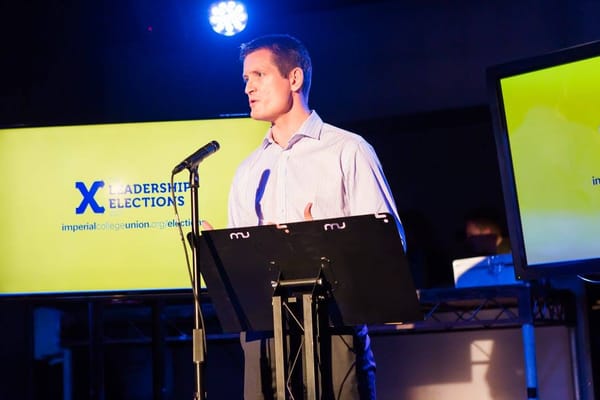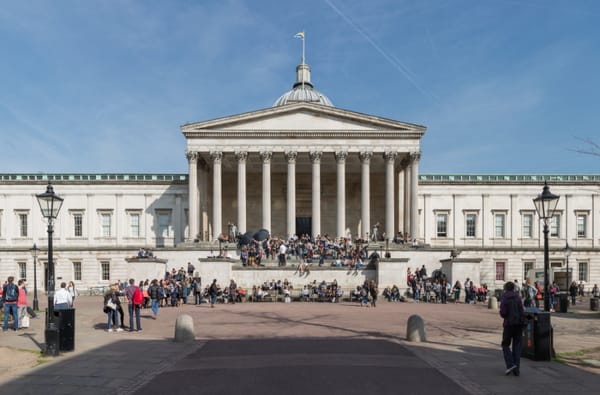Imperial College Union to support strikes
Imperial College Union Council largely voted in favour of a motion to support the upcoming strike, which is due to start this week.

Imperial College Union (ICU) Council this week voted to support the upcoming strike action being taken by the University and College Union (UCU) over changes to the pension scheme.
In a secret ballot, 76% of Council members in attendance voted to pass a paper that called on “elected representatives of ICU to support the UCU position in meetings with College”, and “disseminate material publicising the strike and UCU’s position on the dispute.”
The paper was raised by Abhijay Sood, Academic Affairs Officer for the Royal College of Science Union (RCSU), and seconded by a number of representatives across four constituent unions, ahead of next week’s strike action. Members of UCU have scheduled 14 days of escalating strike action over a four-week period, in response to a dispute with Universities UK (UUK) over pension scheme changes.
Currently UUK are planning a change to the Universities Superannuation Scheme (USS), which would take it from a defined benefit scheme, in which the employer pays in contributions up to a salary of £55,000, to a defined contribution scheme, in which the pension value is linked to the performance of the stock market.
Students at Council raised concerns over the impact the strike would have to education, particularly to exams and major coursework deadlines. They also expressed concern over potential tuition fees lost as a result of the strikes. Sood stated that there were a number of things representatives could do to mitigate the impact the strikes would have on major coursework and exams – a position stated in the paper. Since external invigilators are not part of UCU, exams scheduled for the strike period should not be affected.
The approach to the strike will depend department by department, but it is likely that teaching missed would not be retaught and will be examined in full. Full sets of lecture notes should be made available, however. Sood stated that Union representatives should “ensure no student is disadvantaged, in the short or the long run.”
Members of Council also cited a number of cuts to campus services, suggesting the changes to the pension scheme was the latest in a series of cost-cutting measures. In a meeting with UCU earlier this month, College management conceded they could afford to continue the defined benefit scheme, which would cost at most 10% of the College’s operating surplus. Last year the College made a total surplus of nearly £120 million.
Students in support of the paper argued the strikes were necessary for the long-term sustainability of teaching. Ariana Sadr-Hashemi, Mental Health Liberation Officer, said “a lecturer who is invested in their lecturing and gives the best teaching experience to their students is not one who is financially insecure.”
Stephen Naulls, Imperial College School of Medicine Students’ Union (ICSMSU) Welfare Officer, told Council “I don’t think anyone who is sitting here as a Union representative can contradict the main purpose of a Union: to collectively bargain for the betterment of their members. That is exactly what the UCU is doing, and I don’t think anybody could sit here and genuinely vote against that as a Union representative.”
In total, 24 members of Council voted for the paper, six voted against, and two abstained.
Sood told Felix: “I’m immensely pleased with this result, but this is only the start. The Union must now follow through by supporting the UCU with more than just kind words, both by putting pressure on College to resolve the dispute and in its communication with students on this issue.”
Roddy Slorach, a representative of UCU who spoke at the Council meeting, told Felix “I was very pleased to be invited to speak on behalf of the UCU branch. I was made very welcome, and was particularly impressed by the recognition by all those who contributed to the discussion that the UCU has been forced to resort to strike action due to the hard line taken by our employers.”
“I emphasised how far the pension changes would impact on staff security and living standards, and that management informed the joint trade unions that they could afford to pay additional contributions, but have chosen not to. We are immensely grateful to the Union Council for so overwhelmingly agreeing to support us in out action, and hope that together we can help ensure that management reconsider, avoiding the disruption for which we agree they, and they alone, should be held responsible.”
The move from Council comes in the same week a large number of staff from the Department of Physics wrote to Professor James Stirling, Provost of Imperial, expressing their “profound dismay at the way in which Imperial College is handling the proposed changes to our pension scheme”. The letter, which has been signed by nearly 80 staff members – over half the academic staff in the department – says the changes are “a very shabby reward for the hard-working academics who have created the world-class reputation Imperial College currently enjoys.”
The letter goes on to argue the proposed changes would leave staff worse off, and that the changes are “neither necessary nor well-motivated.” It urges management to “stand up for the Imperial College staff for whom you are responsible.”
Dr Michael McGarvey, President of Imperial College UCU, told Felix: “Imperial’s management are telling students that massive cuts to staff pensions of up to 60% are essential. The reality is quite different. Independent analysis has shown the basis for making these cuts is false.”
He said “any disruption to students lies squarely with the senior management who could instruct their representatives to return to the negotiation. We urge students to support the staff.”
In a statement for Felix, Alex Chippy Compton, ICU President, said: “Union Council voted overwhelmingly to support the position of UCU in their upcoming strike, meaning ICU will be writing to the Provost and making the case where we can to encourage Imperial, and universities across the UK, to return to the negotiating table.”
“While we will do what we can to minimise the impact on students, our elected student representatives believe the potential long-term impact on quality of teaching and job security of academics is serious enough that the students should support their lecturers as they take strike action on this issue.”
A College spokesperson told Felix: " We appreciate students may have concerns about potential disruption but the College will be open as usual and departments are working hard to ensure that teaching and assessment activities continue as normal. Any changes to schedules will be communicated by Departments. Advice for students is available online."









